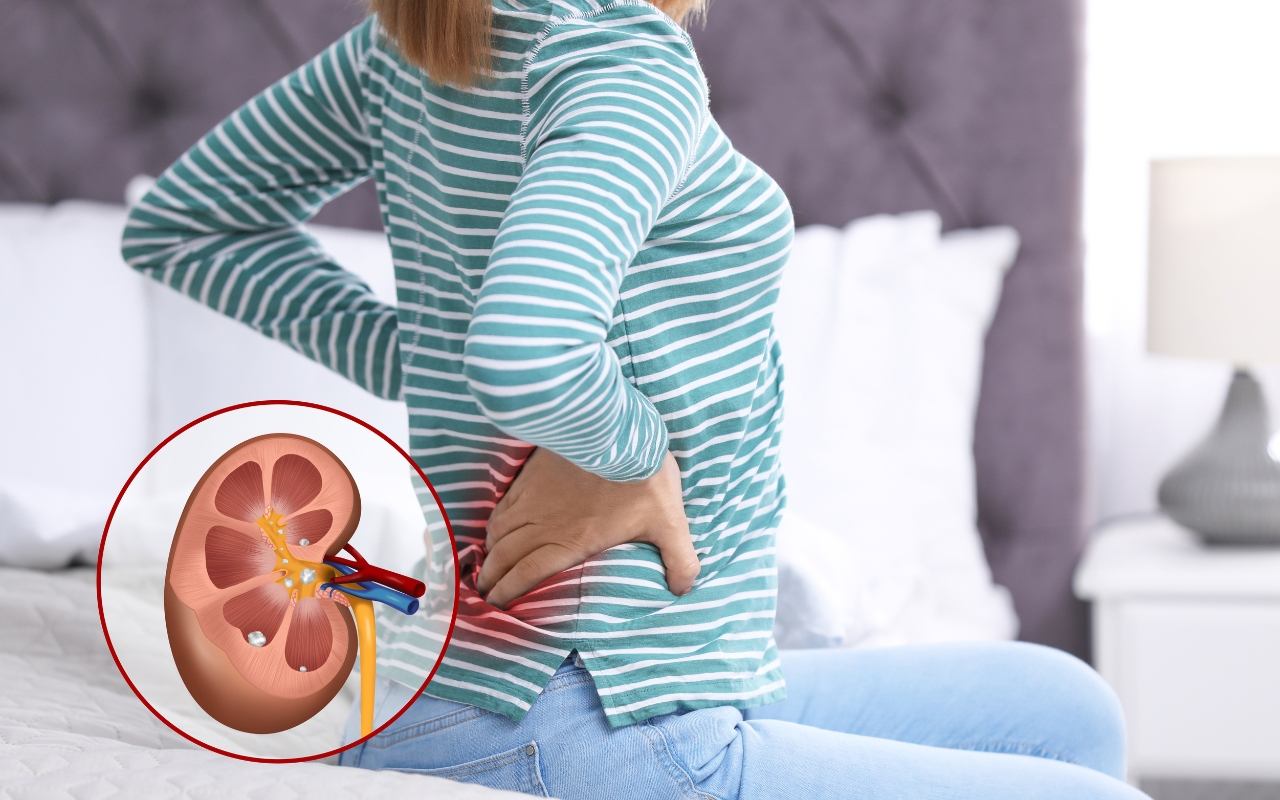Published
2 years agoon
By
mbkteam
Kidney stones, while often small in size, can cause significant discomfort and pain, making their prevention a crucial aspect of maintaining good health. This comprehensive guide outlines effective strategies for preventing kidney stones, focusing on dietary adjustments, lifestyle changes, and medical insights.
Understanding the underlying causes of kidney stones is fundamental in developing prevention strategies. These hard deposits form in the kidneys when there is an imbalance in the substances that comprise urine, such as minerals and salts. Common types of kidney stones include calcium oxalate, uric acid, struvite, and cystine stones, each requiring specific preventive measures.
Hydration: The Cornerstone of Prevention
Staying well-hydrated is one of the most effective ways to prevent kidney stones. Water dilutes the substances in urine that lead to stones. Aim for at least two to three liters of water daily. A simple way to measure adequate hydration is by the color of your urine; it should be a light yellow, similar to lemonade. Drinking plenty of water not only helps flush out minerals and salts before they can crystallize but also supports overall kidney function.
Dietary Adjustments to Prevent Kidney Stones
Diet plays a critical role in kidney stone prevention. Here are some dietary guidelines to follow:
High sodium intake can cause calcium to be excreted through the urine, increasing the risk of stone formation. Reducing sodium intake to less than 2,300 mg per day is advisable. For those with a history of kidney stones, lowering sodium intake to 1,500 mg per day is even more beneficial. Processed foods, canned soups, and salty snacks are common sodium culprits. Reading food labels can help manage and reduce sodium consumption effectively.
Animal proteins, including beef, poultry, fish, and pork, are high in purines, which can increase the risk of uric acid stones. Limit intake of these proteins and incorporate more plant-based proteins like legumes, nuts, and soy products. This adjustment can help balance the acid levels in your urine and reduce the likelihood of stone formation.
Calcium oxalate stones are the most common type of kidney stones. It’s a misconception that reducing calcium intake can prevent these stones. In reality, low dietary calcium can increase the risk. Instead, focus on getting calcium from food rather than supplements, and consider pairing calcium-rich foods with oxalate-rich foods to reduce oxalate absorption. Foods high in oxalate include spinach, beets, nuts, and chocolate; moderating their intake and combining them with calcium sources like dairy can be beneficial.
Citrus fruits such as lemons and limes are high in citrate, which can help prevent kidney stones by binding with calcium in the urine and reducing the formation of new stones. Regularly incorporating these fruits into your diet can be a tasty and natural way to reduce stone risk.
Lifestyle Changes and Their Impact
Aside from dietary modifications, several lifestyle changes can further help prevent kidney stones:
Obesity and being overweight are significant risk factors for kidney stones. Excess body weight can increase the excretion of calcium and uric acid in the urine. Adopting a balanced diet and engaging in regular physical activity can help maintain a healthy weight and reduce the risk of stone formation.
Physical activity is beneficial not only for weight management but also for metabolic health, which can influence kidney stone risk. Aim for at least 150 minutes of moderate aerobic activity or 75 minutes of vigorous activity each week. Exercise supports the body's metabolic processes and helps regulate substances in the blood and urine.
Medical Insights and Regular Monitoring
For individuals with a history of kidney stones, medical monitoring and tailored treatments are crucial. Here are some key medical insights:
A metabolic workup can provide valuable information about the specific type of kidney stones and the underlying causes. This evaluation typically includes urine and blood tests to measure levels of calcium, oxalate, uric acid, and other components. Discussing the results with a urologist can help tailor preventive strategies and treatments.
In some cases, medications may be prescribed to prevent kidney stones. These can include thiazide diuretics to reduce calcium in the urine, potassium citrate to raise citrate levels, or allopurinol to reduce uric acid levels. Always consult with a healthcare professional before starting any medication.
Regular check-ups with a healthcare provider are essential, especially for those with recurrent kidney stones. Keeping track of urinary symptoms, dietary habits, and hydration levels can help in early detection and prevention of new stones.
Conclusion: A Proactive Approach to Kidney Health
Preventing kidney stones involves a multifaceted approach that includes adequate hydration, dietary adjustments, lifestyle changes, and regular medical monitoring. By understanding the risk factors and making proactive changes, you can significantly reduce your risk of kidney stones and maintain optimal kidney health.
For more detailed information on kidney stone prevention, consult resources from credible medical websites such as WebMD and the National Institute of Diabetes and Digestive and Kidney Diseases (NIDDK). These sites offer comprehensive guides and tools to help tailor your prevention strategies based on your specific needs.










Disclaimer: Please understand that any news, guides or reviews found here are not a worthy substitute for medical advice. It is extremely wise to consult with a licensed healthcare professional or physician before adding any new health product or program to your routine. No supplements or services here are intended to diagnose, cure or prevent any disease.
Disclosure: Links located within this website may be affiliate placements where referral rewards will be generated if you make a purchase. This adds no additional cost to you and does not change the outcome of the research or review, but goes back into site upkeep and team sustainability.

